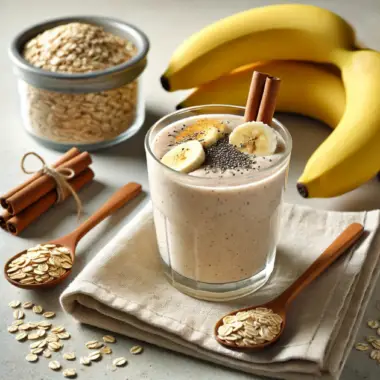The fruitarian diet is one of the most restrictive plant-based eating patterns, centering around raw fruits with limited consumption of other plant foods. While this diet has been praised for its potential health benefits, such as weight loss and improved digestion, it also comes with serious nutritional concerns.
In this comprehensive guide, we will explore the fruitarian diet in detail, discussing its benefits, risks, and recommended food choices to help you determine whether this eating approach is suitable for you.
What Is the Fruitarian Diet?
The fruitarian diet is a subset of veganism that primarily consists of raw fruits. Some variations of the diet allow for small amounts of nuts, seeds, and vegetables, while stricter forms may only permit fruits that naturally fall from trees, avoiding root vegetables and grains.
This diet is often inspired by ethical, health, or spiritual beliefs, with some practitioners following it as a way to eat in harmony with nature.
Basic Principles of the Fruitarian Diet
- Primary Food Source: 50-90% of daily intake comes from raw fruits.
- Limited Other Plant Foods: Some versions allow nuts, seeds, and vegetables in moderation.
- Raw and Unprocessed: Most fruitarians consume food in its raw, natural state.
- Sustainability Mindset: Some adhere to eating only fruits that naturally fall to the ground.
While this diet is extremely high in natural sugars, fiber, vitamins, and antioxidants, it is low in protein, fats, and essential nutrients like B12, iron, and omega-3 fatty acids, raising nutritional concerns.
Potential Benefits of a Fruitarian Diet
The fruitarian diet offers some health benefits, mainly due to its high intake of fresh fruits, antioxidants, and fiber. Below are some of the most notable advantages:
1. Rich in Vitamins and Antioxidants
Fruits are naturally rich in vitamins A, C, and E, as well as polyphenols and flavonoids that help combat oxidative stress. These nutrients can:
- Improve skin health and slow aging.
- Boost immune function.
- Reduce inflammation and the risk of chronic diseases.
2. High in Fiber for Digestion and Gut Health
Most fruits are excellent sources of dietary fiber, which:
- Promotes healthy digestion and prevents constipation.
- Supports gut microbiome health, feeding beneficial bacteria.
- Aids in weight management by promoting fullness.
3. May Promote Weight Loss
Due to its low-calorie, high-fiber nature, the fruitarian diet can contribute to weight loss. The high water content in fruits also helps with hydration and satiety, making it easier to consume fewer calories.
4. Supports Heart Health
Many fruits, such as berries, oranges, and apples, contain compounds that:
- Lower blood pressure due to potassium content.
- Reduce cholesterol levels by providing soluble fiber.
- Protect against heart disease with antioxidant-rich nutrients.
5. Naturally Hydrating
Since fruits contain high amounts of water (such as melons and citrus fruits), they help keep the body hydrated, which benefits:
- Skin health.
- Kidney function.
- Energy levels.
While these benefits sound promising, the fruitarian diet is not without its risks.
Major Drawbacks of the Fruitarian Diet
Despite its benefits, the fruitarian diet has significant downsides, mainly due to nutrient deficiencies and extreme sugar consumption.
1. Risk of Nutrient Deficiencies
By eliminating grains, legumes, and most vegetables, this diet lacks several essential nutrients, including:
- Protein: Crucial for muscle maintenance and overall bodily function.
- Vitamin B12: Found only in animal products; deficiency leads to neurological issues.
- Iron & Zinc: Lacking in plant-based diets and necessary for immune function.
- Omega-3 Fatty Acids: Important for brain and heart health, mostly found in nuts, seeds, and fish.
- Calcium & Vitamin D: Necessary for bone health, mainly found in dairy or fortified foods.
These deficiencies can cause fatigue, muscle loss, weakened immunity, and bone health issues over time.
2. Excessive Sugar Intake
Even though fruit contains natural sugars, consuming excessive amounts can still impact blood sugar levels. Some potential risks include:
- Spikes in blood sugar leading to energy crashes.
- Increased risk of insulin resistance in predisposed individuals.
- Potential for dental problems due to frequent sugar exposure.
People with diabetes or prediabetes should be especially cautious about adopting a fruitarian diet.
3. Low in Healthy Fats and Protein
A lack of adequate protein and healthy fats can cause:
- Muscle loss and slow recovery after physical activity.
- Hormonal imbalances, as fats are essential for hormone production.
- Brain fog and mood swings due to omega-3 deficiency.
4. Can Be Socially and Practically Challenging
A fruitarian diet is highly restrictive, making it difficult to maintain in social situations, restaurants, or while traveling. The diet also requires frequent grocery shopping and can be expensive, as fresh fruits tend to be costlier than other foods.
5. May Lead to Eating Disorders
Due to its extreme restriction of food groups, a fruitarian diet may contribute to disordered eating patterns or an unhealthy obsession with “pure” foods.
What’s on the Fruitarian Menu?
The fruitarian diet includes a variety of fresh, raw fruits, along with some optional plant-based foods.
Fruits Commonly Eaten
- Berries: Strawberries, blueberries, raspberries, blackberries.
- Citrus Fruits: Oranges, lemons, grapefruits.
- Tropical Fruits: Bananas, mangoes, pineapples, papayas.
- Melons: Watermelon, cantaloupe, honeydew.
- Stone Fruits: Peaches, plums, cherries, apricots.
- Apples and Pears
- Grapes
- Tomatoes, Avocados, and Cucumbers (considered fruits botanically)
Optional Foods in Less Strict Versions
- Nuts and Seeds: Almonds, walnuts, chia seeds, flaxseeds.
- Raw Vegetables: Leafy greens, carrots, bell peppers.
- Coconut Products: Coconut meat, coconut water.
- Limited Grains or Legumes: Quinoa, sprouts (in some variations).
Foods to Avoid
- Cooked Foods: Including cooked vegetables or grains.
- Animal Products: Meat, dairy, eggs.
- Processed Foods: Bread, pasta, processed snacks.
- Legumes and Beans (strict fruitarians avoid them).
- Grains and Starches: Rice, oats, potatoes.
How to Follow a Fruitarian Diet Safely
If you are considering a fruitarian diet, it’s important to plan carefully to prevent nutritional deficiencies.
1. Prioritize Nutrient-Dense Fruits
Choose a variety of colorful fruits to maximize nutrient intake, including berries, citrus, and tropical fruits.
2. Incorporate Healthy Fats and Protein
If following a less strict version, include:
- Avocados, nuts, and seeds for healthy fats.
- Coconut-based products for added nutrition.
- Leafy greens and sprouts to increase mineral intake.
3. Supplement Key Nutrients
To avoid deficiencies, consider taking:
- Vitamin B12 supplements (essential).
- Iron and zinc supplements if not consuming nuts/seeds.
- Omega-3 supplements (from algae oil).
4. Monitor Blood Sugar Levels
If you have diabetes or insulin resistance, be mindful of fruit consumption, opting for low-glycemic fruits like berries and apples.
5. Consider a More Balanced Approach
A modified high-fruit, plant-based diet that includes:
- Cooked vegetables, whole grains, nuts, and legumes can be more sustainable and nutritionally balanced.
Conclusion: Is the Fruitarian Diet Right for You?
The fruitarian diet is an extreme, plant-based eating style that offers benefits like high fiber, antioxidants, and hydration but poses serious nutritional risks due to its lack of protein, fats, and essential vitamins.
While some people may thrive on a modified version with added nuts, seeds, and greens, a fully strict fruitarian diet is not recommended long-term due to potential health risks and deficiencies.
If you are considering this diet, it is crucial to consult with a healthcare provider to ensure you are meeting your nutritional needs while maintaining a healthy balance.
Would you consider trying the fruitarian diet? Let me know your thoughts! 🍎🍌🥭j
References
- Academy of Nutrition and Dietetics. (2021). “Plant-Based Diets: Health Benefits and Considerations.” Retrieved from www.eatright.org
- National Institutes of Health (NIH). (2020). “Dietary Guidelines for Americans: Key Recommendations.” Retrieved from www.nih.gov
- Harvard T.H. Chan School of Public Health. (2022). “Fruit Consumption and Its Impact on Health.” Retrieved from www.hsph.harvard.edu
- World Health Organization (WHO). (2019). “Healthy Diet: Nutritional Considerations for Optimal Health.” Retrieved from www.who.int
- Mayo Clinic. (2023). “Raw Food and Fruit-Based Diets: Benefits and Risks.” Retrieved from www.mayoclinic.org
- American Heart Association. (2021). “How Fruits and Vegetables Help Heart Health.” Retrieved from www.heart.org
- Cleveland Clinic. (2022). “High-Fruit Diets: Do the Benefits Outweigh the Risks?” Retrieved from www.clevelandclinic.org
- PubMed – National Library of Medicine. (2020). “The Effects of Fruit-Only Diets on Nutritional Deficiencies and Metabolism.” Retrieved from www.ncbi.nlm.nih.gov
- British Nutrition Foundation. (2021). “Sugar in Fruits: Is It Bad for You?” Retrieved from www.nutrition.org.uk
- Harvard Medical School. (2019). “Balancing a Fruit-Rich Diet: What You Need to Know.” Retrieved from www.health.harvard.edu
- Journal of the American Medical Association (JAMA). (2018). “Vegan and Fruitarian Diets: Nutritional Gaps and Recommendations.” Retrieved from www.jamanetwork.com
- USDA Food Database. (2023). “Nutritional Content of Fruits and Their Health Benefits.” Retrieved from www.usda.gov
These references provide a scientific foundation for the fruitarian diet, ensuring that the information is evidence-based and well-supported by research. Always consult a healthcare professional before making drastic dietary changes. 🍏🍊🥑


















